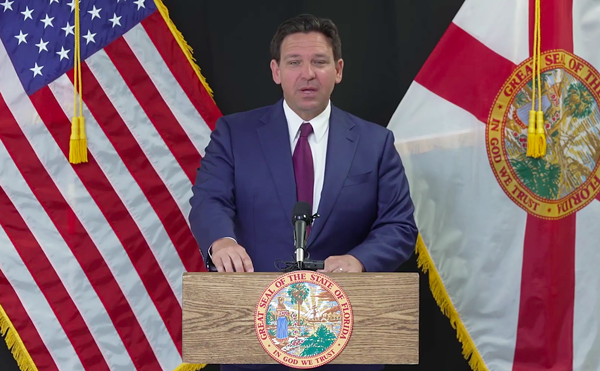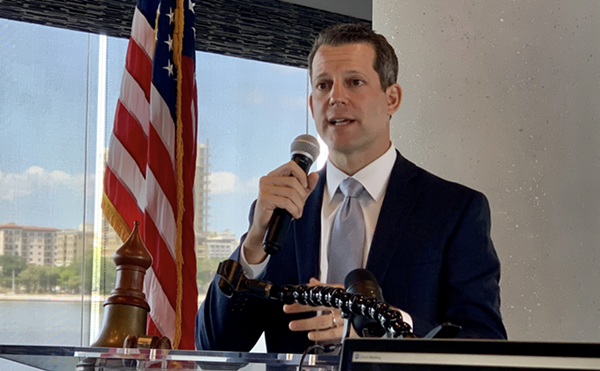On a similarly discordant note for reform supporters, last Wednesday night South Florida Democratic Congressman Ron Klein held a telephone town hall meeting to say that he was not a guaranteed 'yes' vote for healthcare reform.
"Until I'm satisfied, I'm not going to be supporting this bill. I'm not quite there yet," he said in response to a question, according to the South Florida Sun-Sentinel.
Then there was Wisconsin iconic Democratic Senator Russ Feingold, who told a town hall recently that he wasn't sure there would be any healthcare reform bill before Christmas, if at all.
Those comments are instructive, at least for the short term. What they suggest is that the goal of meaningful healthcare reform has been damaged by the guns of August.
But as the country mourns the loss one of its greatest legislators, the question now is how President Obama and Congressional Democrats pivot in the face of a divided populace.
Senator Nelson called for incrementalism in his Tiger Bay speech on healthcare reform. New York Times columnist David Brooks honored Ted Kennedy in a recent column for his incrementalism, writing that it's what allowed him to achieve signficant (and bipartisan) expansion of healthcare coverage, such as the SCHIP program in 1997 which brought coverage to 10 million children who were previously uninsured.
(The fact that it was the conservative Brooks who praised incrementalism lit up the liberal blogosphere as something that the Dems should not embrace.)
But a week before Senator Kennedy died, there were already reports that Senate Democrats were contemplating breaking up their reform plans into two separate bills — one requiring 60 votes, the other 51 (under the fast-track legislative process known as reconciliation).
Conservatives pounced on comments by Democrats about healthcare in the immediate hours and days after Senator Kennedy's death. But they were too quick to judge.
Getting universal coverage was a passion of Kennedy's (perhaps never better expressed than at the Democratic Party's midterm Convention in Memphis in 1978).
The debate about whether Kennedy would settle for a full or half a loaf (public option or no?) is not academic. Two of the country's finest pundits, ABC's George Stephanopoulous and MSNBC's Lawrence O'Donnell, argue now about what Senate Democrats should do — and how Kennedy would act on the issue.
Then again, a recent AARP poll suggested close to two thirds of Americans don't even know what a public option is.
Democrats will continue to squabble amongst themselves regarding a government option vs. co-ops. They're swimming against a rising tide of anti-government sentiment, as well as what economists refer to as "status quo bias," the 70 percent or so of Americans who have healthcare coverage and in many cases believe federal legislation will only make it worse.
Ted Kennedy did not live long enough to see universal coverage occur in America. But in endorsing Barack Obama for President some 20 months ago, he said he was convinced Obama could.
But will it be in increments, it at all? A divided nation will watch it play out.















